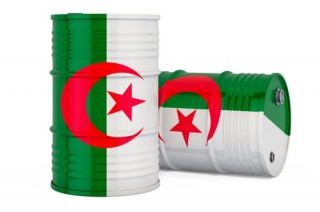Why the Magreb is strategically important
In this article Ahmad Abdul-Rahman looks at why the Maghreb region is strategically important to the rest of the world.
The location of the Maghreb is considered to be strategic geographically. The bloc is also similar in terms of the countries' proximity to one another, their topography, culture, language, religion, history and ambition. As well as the challenges they face, the Maghreb countries have similarities economically in terms of competition for goods and services. Moreover, the Maghreb has access to one of the most important, and dangerous sea routes, in international navigation, namely the route from the Mediterranean Sea to the Strait of Gibraltar.
The Maghreb comprises the countries of the western region of the Islamic world, namely Algeria, Libya, Mauritania, Morocco, and Tunisia. These countries are located between latitudes 15, 38 degrees north, longitudes 17, and 25 degrees east. Theyand form the northern part of the African continent, bordered to the north by the Mediterranean Sea, to the west by the Atlantic Ocean, to the east by Egypt, and to the south and southeast by Senegal, Mali, Niger, Chad and Sudan. It's land area is estimated to be 6.05 million km² , or about 20% of the area of Africa. This is equivalent to one fifth of the continent and 43.3% of the area of the Arab world, which is equal to half of the region and 4.5% of the area of the world. Hence, this region ranks seventh in the world in terms of land area after Russia, Canada, China, the United States, Brazil, and Australia.
Economically, the geographical location of these countries fosters openness and economic development, and represents a real opportunity for foreign trade. The countries of the Maghreb are also important in terms of natural, energy and water resources, agricultural production and tourism qualifications, and are, arguably, the best areas in the world for producing solar energy. The region is also a rich source of fisheries and marine life and is a corridor for global trade. Fifty per cent of the oil consumed from Europe passes through the Mediterranean.
This region has become an open and important market for European exports, investments, and imports of oil and natural gas supplies within the framework of the Euro-Mediterranean partnership. The region also has more than 22 million hectares of agricultural area, which is rich in underground and renewable water, with a global reserve estimated to be 40% of the world's reserves.
The region is also a strategic source of energy, the most important being oil. Algeria and Libya have proven reserves of more than 60 billion barrels, or and 6 trillion cubic metres of natural gas, according to BP Statistical Review. Algeria alone ranks fifth in terms of its global oil and gas reserves, is the second largest exporter of these to Europe, and the first in Africa in terms of oil and gas production..
Morocco is also the third largest producer of phosphate globally and is the world's largest exporter of it. After Morocco, Tunisia ranks fifth in terms of global reserves of phosphate. It has other minerals as well , including iron, which is dominant in Algeria and Mauritania, with reserves estimated to be 90 billion tonnes. These countries also have 17% of the world's reserves of coal, not to mention large untapped reserves of lead, uranium, copper, zinc and gold.
Military strategists also believe that the Maghreb is very strategic if there is any global conflict. Furthermore, its location in the heart of the Mediterranean provides the Maghreb countries with sufficient security and comfort, especially in their ability to plan production, and allows for the distribution of military bases- sea, air and land- and ensures their readiness in battles.
Throughout history these factors have been a concern for the major world powers. They fear that the Maghreb region will be one unified bloc, being organised and integrated. This means the region will have control over strategic sea outlets, and other resources, leading to a power imbalance.
That is why the region is witnessing conflicts between major world players, all of whom are vying to strengthen their own interests. This includes the US, China and the EU, especially France, which has had significant interests in the region. Economic incentives, foremost of which is oil, have become the modus operandi for relations with foreign countries.
The US is aware of the geopolitical importance of the Maghreb region and always seeks to secure its interests. The countries in the region are not ready to capitulate to France, especially when the region comprises more than 100 million people and has important energy resources. The US is also not ready to use its security outlets on any logistical move. . Here we must point out that during the Gulf Wars, 90% of the American forces and the international coalition forces passed through the Mediterranean.


Comments